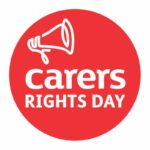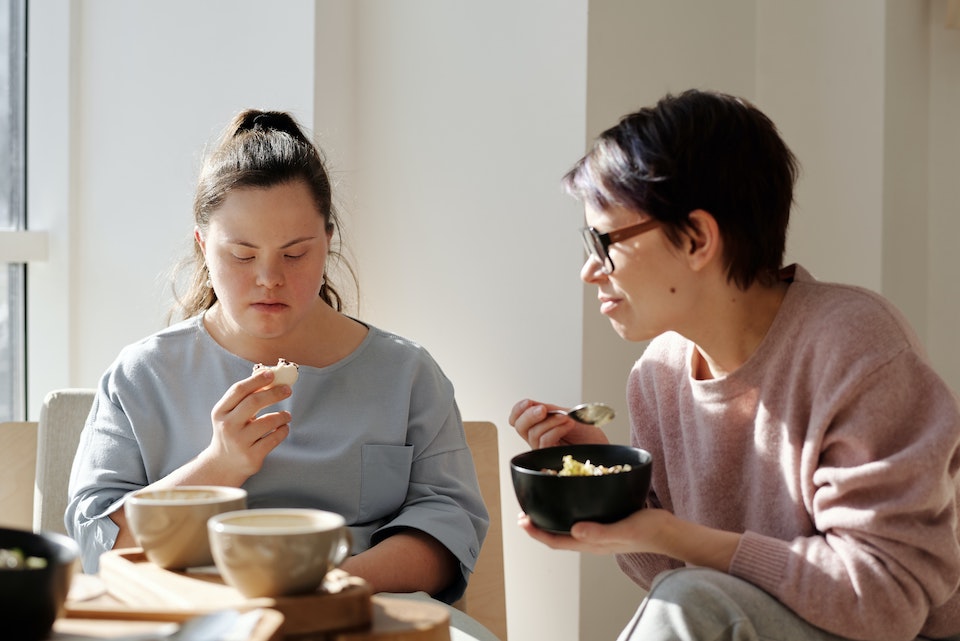Alex Chisholm, Civil Service Chief Operating Officer and Permanent Secretary Lead for Carers, and Rebecca Sudworth, Deputy Lead for Carers, emphasise their commitment to building a carer-friendly workforce.
Carers’ Rights Day (24 November 2022) gives us the chance to reflect on and celebrate the special skills, life experience and insight that carers bring to the workplace.
It is important that carers have a voice. We want carers to feel supported in the workplace, know where they can go to for advice and feel we are all actively listening to the issues they face and taking action where necessary.
 Implementing the Carers’ Strategy
Implementing the Carers’ Strategy
We are grateful to all the carers in the Civil Service who do an amazing job both at work and in their caring responsibilities at home. This is no easy feat and we remain as committed as ever to ensuring real progress is made against the priorities set out in the Civil Service Carers’ Strategy.
Over the course of the past year, we’ve spent time with your departmental Champions and the leaders of staff networks across the Civil Service, to find out about the issues that are important to you and support departments as they implement the Carers’ Strategy.
Becoming Carer Confident
Departments are making good progress in taking forward the actions in the strategy. We are very pleased that 16 organisations are now accredited as Carer Confident including, most recently, the Department for Education and the UK Health Security Agency at Level 2 and the Customer Services section of the Home Office at Level 1.
As well as their caring responsibilities, colleagues may also have additional challenges which they face. Cathy and Maarya tell us about their experiences.
Caring on top of health issues
 Cathy Alliss tells us how life changed for her.
Cathy Alliss tells us how life changed for her.
It was May 2016 when my husband suffered a stroke. The main problem is the damage caused to his brain. He suffers from post-stroke fatigue so he gets tired very easily. Overnight, I lost my rock, companion and best friend. I went from being a wife to being a carer.
I am unable to leave my husband alone for any length of time as he is at risk of falls. Doing the housework, looking after the garden, caring for my husband and holding down a full-time job can be exhausting at times. On top of this, I have health problems myself. I have arthritis in my hands, fibromyalgia and hypermobile joints. Some days I would just like to stay in bed but, as my husband relies on me, I can’t.
I feel very fortunate to work for an organisation that supports carers and allows people to work flexibly. I have a role which allows me to work from home. I have changed my normal working pattern to work four longer days so I get a three-day weekend. I have some fantastic colleagues and a brilliant, supportive line manager. I have recently completed my carer’s passport so that my line manager is aware of my caring responsibilities. We have had an honest and open discussion about my caring role.
My message to every other working carer out there is, “Everyone has good days and bad days. You need to take life one day at a time. Don’t be too hard on yourself. You ARE doing a fantastic job.”
Being a young adult carer
Maarya Syed talks about her experience as a young carer.
 It took a couple of months after joining the Civil Service in April 2021 for me to realise that I was a part-time carer. The year before had been mostly spent in lockdown when my life had felt unreal, like I was in a video game. Growing up as the second-oldest in a single parent home meant that I was used to being heavily involved in the running of our household. However, as I entered my early twenties and the professional world, I began to sense that my responsibilities were decidedly different to those of many of my peers.
It took a couple of months after joining the Civil Service in April 2021 for me to realise that I was a part-time carer. The year before had been mostly spent in lockdown when my life had felt unreal, like I was in a video game. Growing up as the second-oldest in a single parent home meant that I was used to being heavily involved in the running of our household. However, as I entered my early twenties and the professional world, I began to sense that my responsibilities were decidedly different to those of many of my peers.
I think raising awareness and supporting carers is urgent and essential because, even for carers themselves, there are so many things that you don’t consider until confronted by them. It takes a toll on your mental health to see a loved one in pain and struggling to move, every day.
You have to become financially and legally literate to be able to budget and understand the labyrinthine options available to you if the person you care for is no longer able to work. My 17-year-old sister and I care for my mum and mourn all the experiences – holidays, trips and outings - that are no longer possible for us to enjoy together.
What does make being a carer (and, in my case, a young adult carer) easier is having a community. These are people who understand, who can provide help and guidance and a listening ear, who you can joke and rant with, and who will share in your grief when the situation worsens and your joy when it improves.
The Department for Education Carers’ Network and the Civil Service Young Carers’ Network, along with friends and family, offer that to me. My role as a committee member for the DfE Carers’ Network is immensely rewarding as I am able to reach out to others with similar experiences, and work to build a space where they can feel seen and supported.
Events
We want to thank all the colleagues who run our carers’ networks, often in combination with their own caring responsibilities. Next week we hope to meet many of you when we attend the Celebrating Carers event organised by the Civil Service Carers’ Network.

